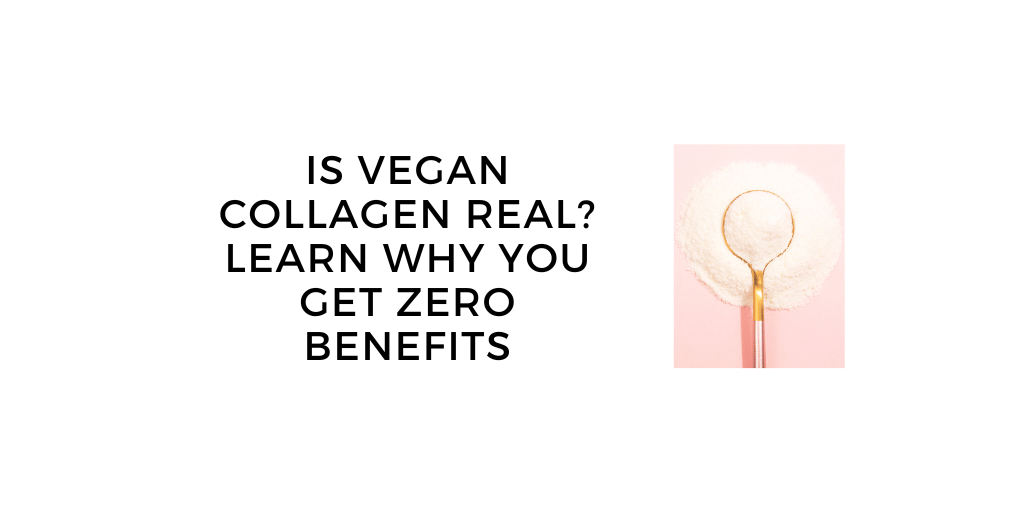
Is Vegan Collagen Real? Learn Why You Get Zero Health Benefits
Guide to (so called) Vegan Collagen
You're vegan, and you want to know if there is a collagen that you can take without harming animals. Or maybe you are curious about all of the plant based collagen promoting products you see on Facebook, Instagram or TikTok?
Many supplement brands are mislabelling products as 'vegan collagen builders' even though they don't contain any actual collagen. These products won't provide any of the health benefits associated with taking collagen. I'll explain why.
Learn why these products are fake and what you can do to increase your collagen levels as a vegan in this article.
As a quick reminder, the best way to get your collagen is through a pasture raised and Non-GMO bone broth. A high quality one like Bluebird Provisions has more protein, electrolytes and nutrients than any collagen.
Ok, enough about that, let's get into what you came here for.

Is there a vegan version of collagen?
There is no commercially available vegan version of collagen. Anything you see labelled as such is a fake product made by a company that is trying to deceive you into buying their products.
Many of these large supplement brands are investing in plant based 'collagen builder' products. But there are simply a collection of nutrients that they seem to think will increase collagen in your body.
In fact, there is no scientific research to support any of these products. While they may provide minerals and vitamins with some benefits, you are not getting any of the crucial amino acids found in collagen or bone broth.
As a result, you will not get any health benefits of collagen by using these plant based alternatives.
What do vegans use for collagen?
Since there is no true plant-based version of collagen yet, many vegans use collagen building products or vitamin and mineral precursors that are supposed to help your body build it naturally.
The problem is that there is a lot of money from big companies going in to this market. They see that there is a need and they are spending billions to tell you that you can get the same benefits with a few different nutrients.
They are wrong and it is cruel to market to you this way. I see people on TikTok talking about this all the time. Learn more about this below.
Vegan Collagen Boosters
Vegan collagen boosters are nutritional products made by supplement brands that contain vitamins and minerals that they claim will boost your collagen. These products do not contain anything resembling actual collagen.
And what sort of research do they provide to support these claims? I have not seen any. The issue is that they are using 'greenwashing' techniques and stuffing ingredient lists with things that sound good for you.
This is known as the 'health halo' effect. The brands try to create a halo of healthy sounding ingredients (vitamin C, silica, zinc, copper) in a product, then market the hell out of it.
Don't get me wrong, these products may be good for other things. After all, they do provide vitamins and minerals. But to claim that they will boost your collagen is wrong and fraudulent. Unfortunately this is commonplace in the supplement industry.

Plant Based Collagen Builders
Plant based collagen builders are supplements that have things like biotin, silica, hyaluronic acid, antioxidants, zinc, copper and vitamin C. These products are marketed to build collagen in your body, but they contain zero collagen or amino acids that make up collagen (glycine and proline).
Lab Grown Collagen is Coming
Lab grown collagen is a category that a few companies are working on developing. The process for making it is similar to lab grown meat.
There is a lot of innovation and patents involved in this process. So I will keep things brief because these companies are tight lipped about their specific process. I'm likely getting some of this wrong, but you'll get a basic idea.
The basic way they are making it is by culturing a genetically modified (GMO) yeast with a bacteria (P. pastoris is a popular one) in a petri-dish or bioreactor. But first they need to get the correct human genes in place that code for collagen.

They combine these things together and add in a digestive enzyme to help mould the collagen molecules into the correct structure.
After some time at the correct conditions, you will have a vegan collagen. I'll mention that we are in the first of nine innings when it comes to this innovation.
It is a very exciting time with lots of money going into the research and development. A few of the key players working on this are Geltor, Jellatech (both USA based) and Aleph Farms (Israel).
Aleph clams to have a commercially available cell-cultured collagen by late 2024. Check back to this article for updates on their progress.
4 Vegan Collagen Health Benefits
The health benefits of vegan collagen are that vegans can finally get the crucial benefits, animal welfare, lower allergen risk and medical applications.
1. Benefits for Plant Based Diet Followers
Many people following plant based diets struggle with skin, reducing hair loss, teeth and nail health because they do not get adequate amino acids to build these things up.
A plant based collagen would allow vegans to reap the unique longevity benefits, joint pain, sleep, blood sugar control along with the aesthetic ones.
2. Animal Welfare
The potential benefits extent to animal welfare. If we have a cost effective, plant based version then we can reduce the demand for animals being raised in poor living conditions.
The big, dirty secret with the collagen industry is that most of these products come from animals raised in Asia or South America. The animal welfare conditions in these countries are even worse than they are in North America.

3. Lower Allergen Risk
The main source of commercially available collagen peptides is from animal sources, which can be problematic for people with allergies to beef or chicken. It is possible than lab grown versions will be lower in allergens. We do not know for certain yet.
4. Medical Applications
Lab grown versions could allow easier and more cost effective use for skin grafts, wound healing, joint repair and drug delivery. This is a long shot at the moment. We are talking about decades before the cost can compete with what these industries are already using.
What are the best sources of collagen?
The best sources of collagen are chicken and beef bone broth. These give you up to 12 g collagen per cup or serving. Bone broth has an almost identical amino acid profile to collagen.
So you can all the benefits plus extra vitamins, minerals and electrolytes like potassium and magnesium. The best one for collagen boosting is the powdered chicken bone broth from Bluebird Provisions.
Another good source is gelatin powder or gelatin containing foods, chicken wings and pork rinds.
How can vegans increase collagen naturally?
Vegans can increase collagen naturally by lifting weights, limiting sun exposure, sleep and stress relief. Let's go through each below.
-
Weight Training is the number one thing anybody can do to boost collagen. Any type (barre, calisthenics, yoga, pumping iron) is better than none. But ideally, you will work your way up to 2-3 full body weight training sessions per week (1).
- Look for exercises that load your whole body like squats, lunges, deadlifts, pushups and pull ups.
- Limiting Sun Exposure: This one is a silent collagen killer. It turns out that high dose UV radiation from tanning beds is the worst culprit (2).
- Sleep and Stress Relief: Stress over a long period of time will chronically raise your cortisol levels. Cortisol is a stress hormone that decreases collagen levels in the body (3). Do your best to practise relaxation technique and make sure you are sleeping well
If you want to learn more, I did a research-backed deep dive into collagen boosting strategies.
Conclusion
So, is there a vegan collagen? No, not yet. Some biotech companies claim they are can make it, but we are years (maybe decades) away from commercially available products at a cost comparable to animal based versions.
But it's not all doom and gloom if you're plant based. You can do many things to naturally support your body's collagen production.
So, don't waste your money on fake supplements that don't work. Instead, try the collagen boosting strategies (lift weights, limit stress, sleep, eat well, etc) I mentioned above.
And if you ever feel like you need that extra boost, you can try the chicken bone broth powder from Bluebird Provisions. It's the only one sourced from pasture raised, USA, Non-GMO chickens with 12 g protein and less than 170 mg sodium.
You can find them on their website or on Amazon.
Disclaimer: this information is for educational purposes only and has not been evaluated by the FDA or CFIA. It is not intended to diagnose, treat, cure, or prevent any disease. Please consult your primary care physician for advise on any of this.
Sources
(1) https://www.ncbi.nlm.nih.gov/pmc/articles/PMC6566884/
(2) https://www.ncbi.nlm.nih.gov/pmc/articles/PMC3299808/
(3) https://www.ncbi.nlm.nih.gov/pmc/articles/PMC8125628/

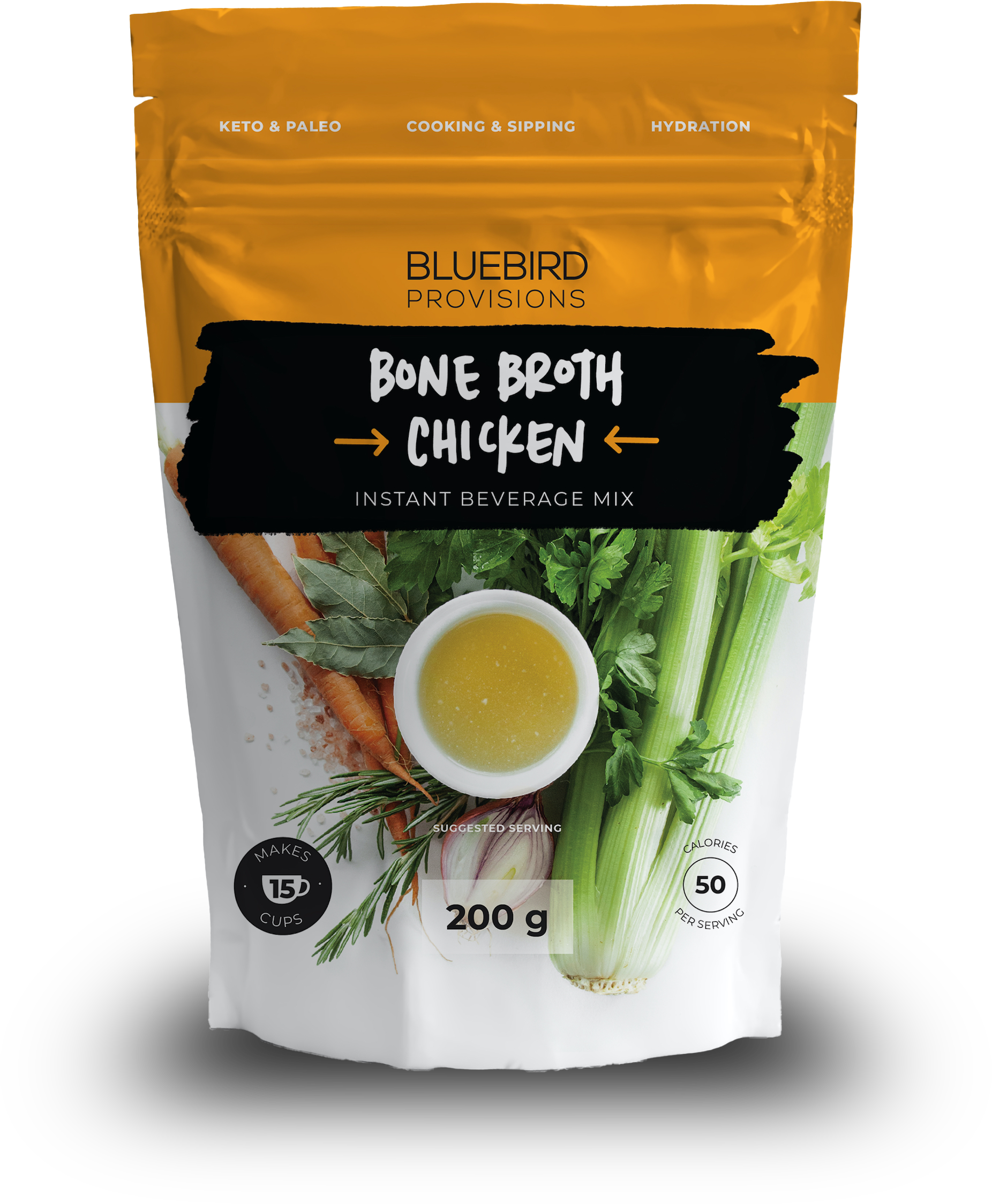
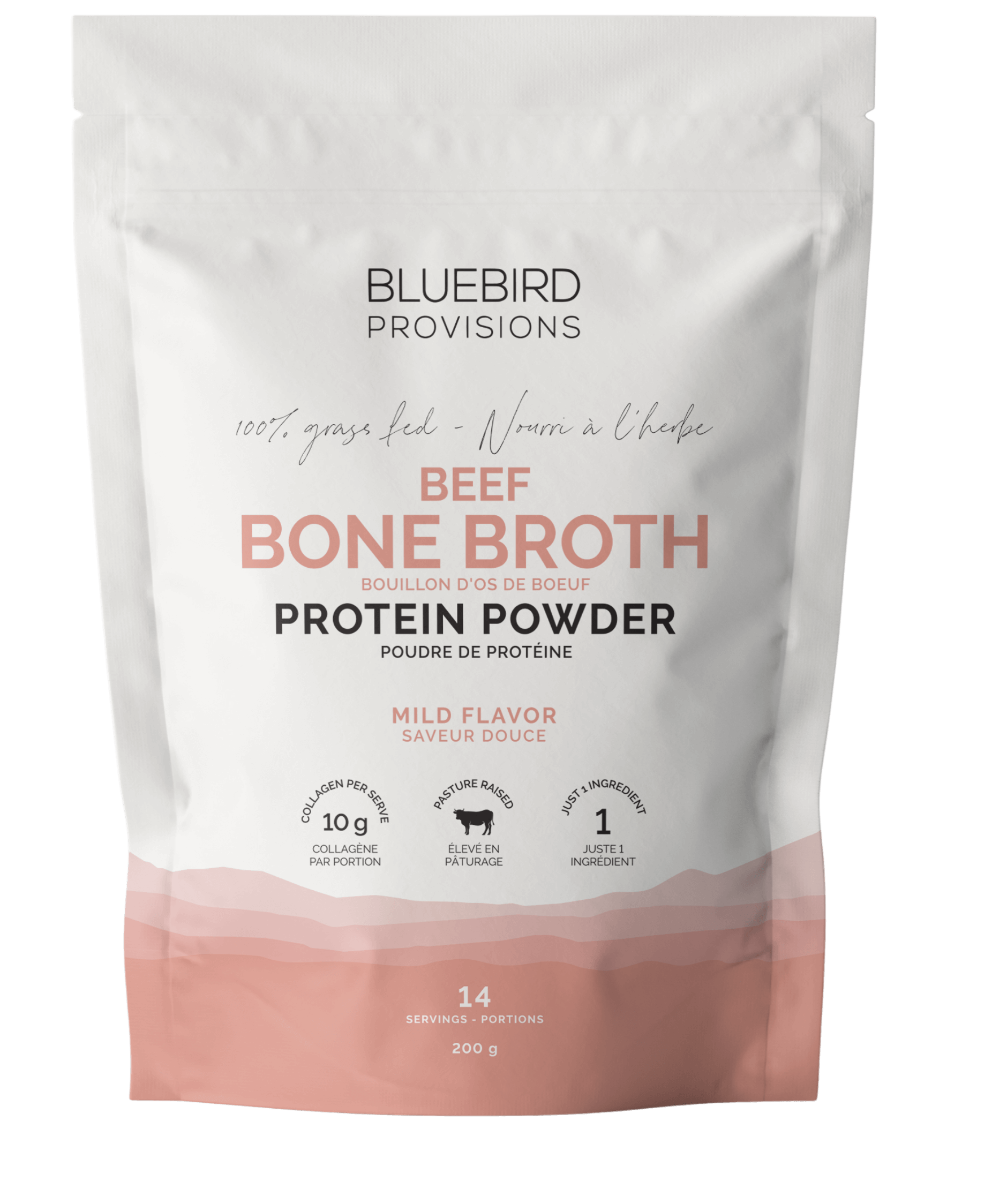
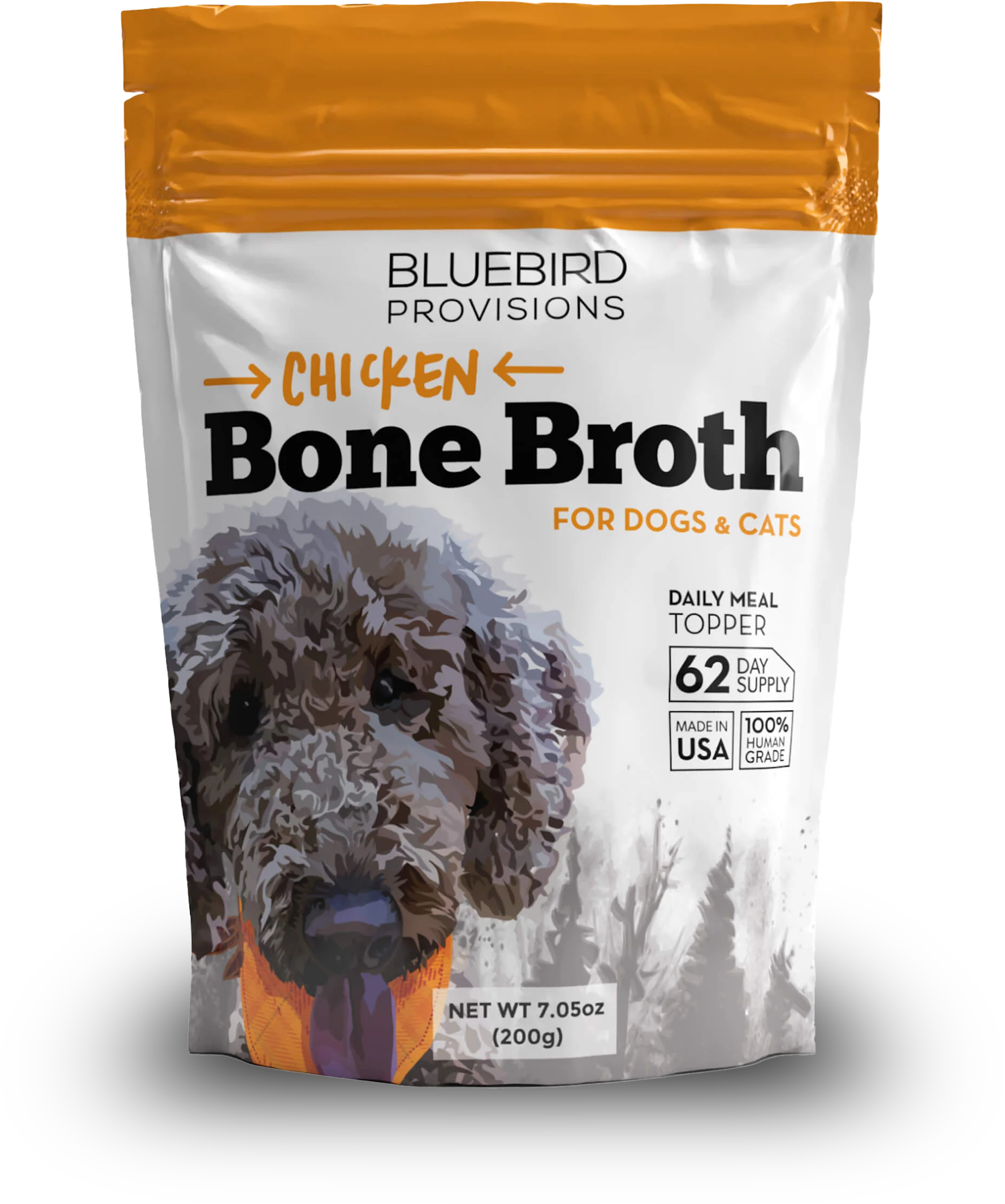
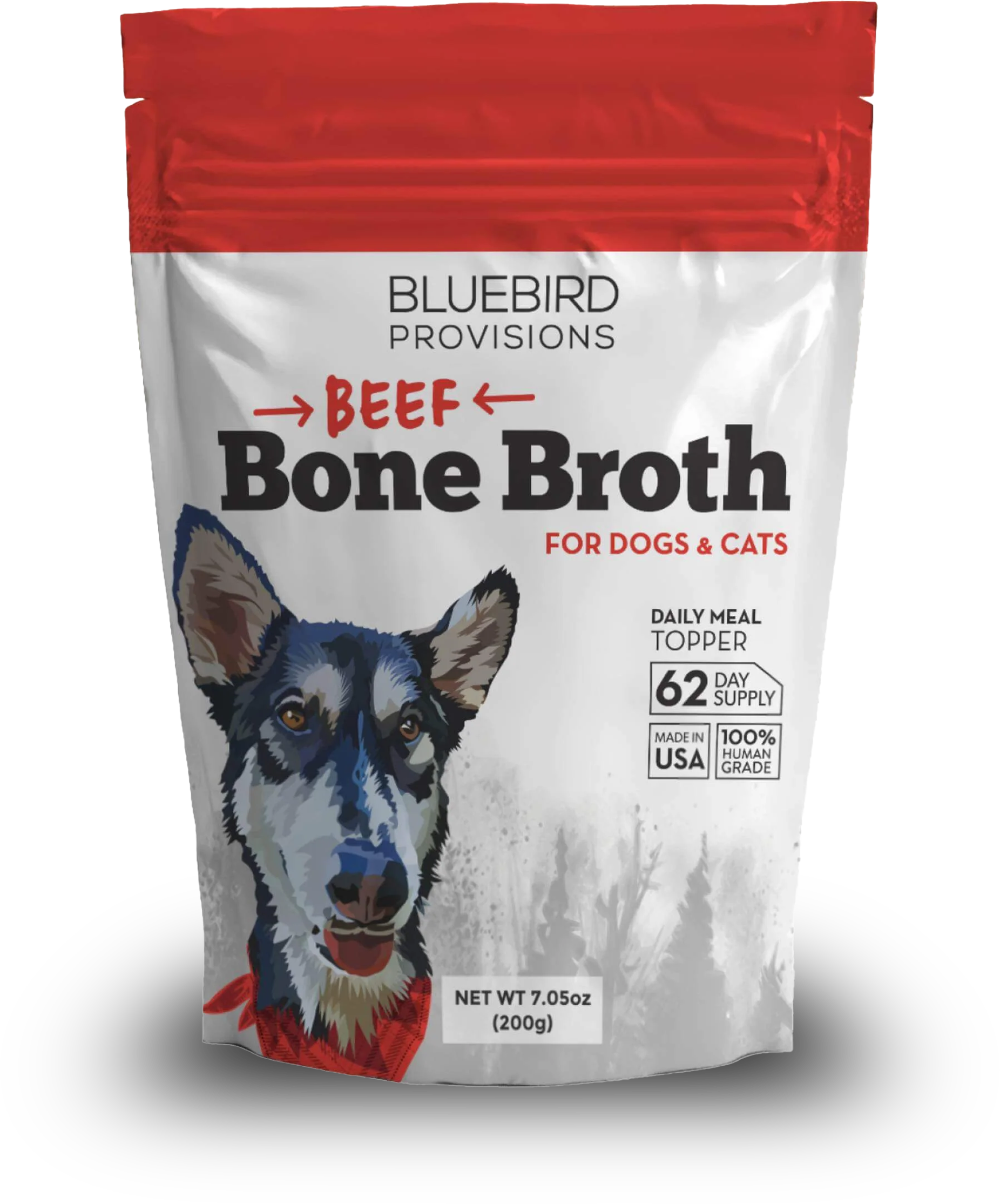
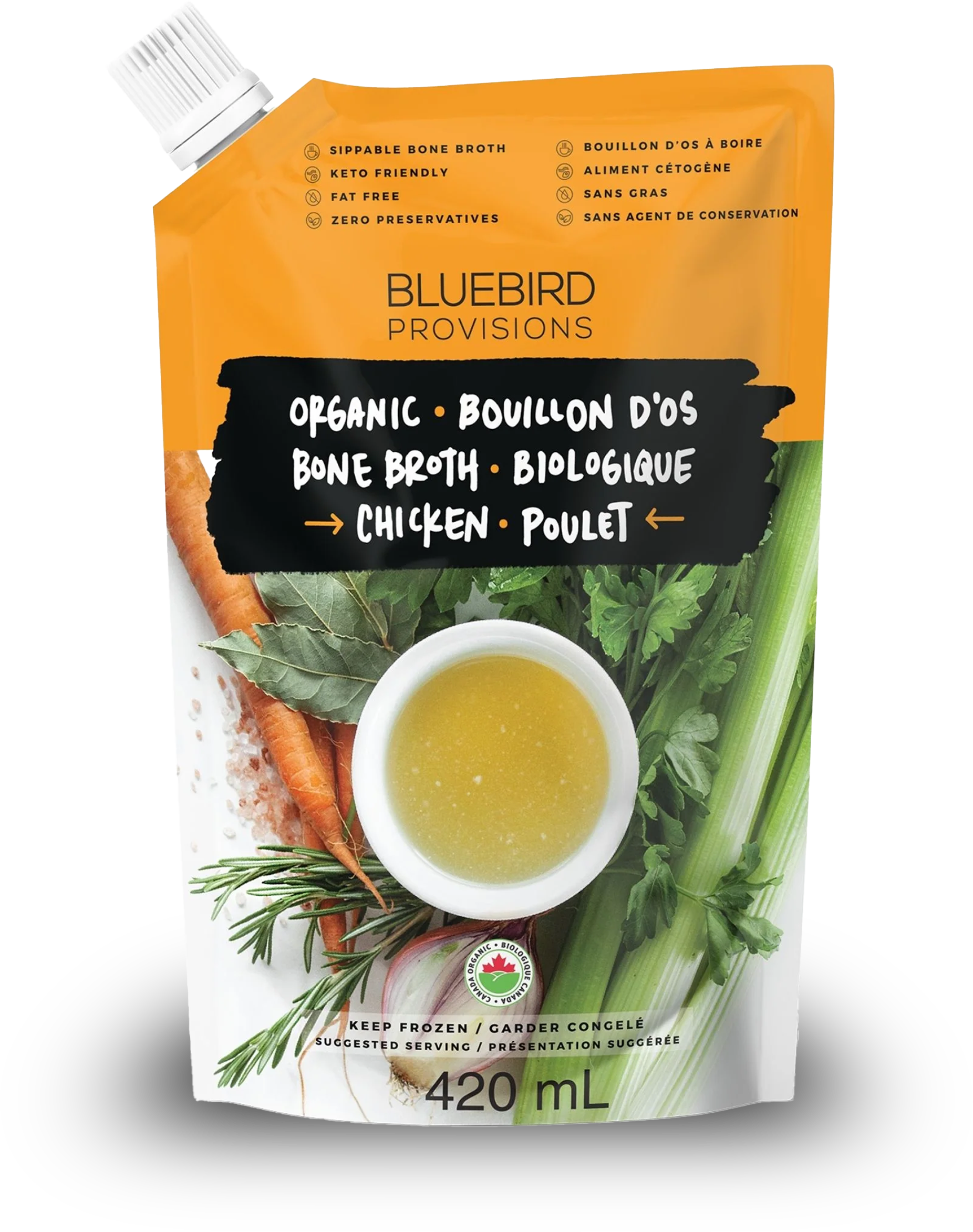
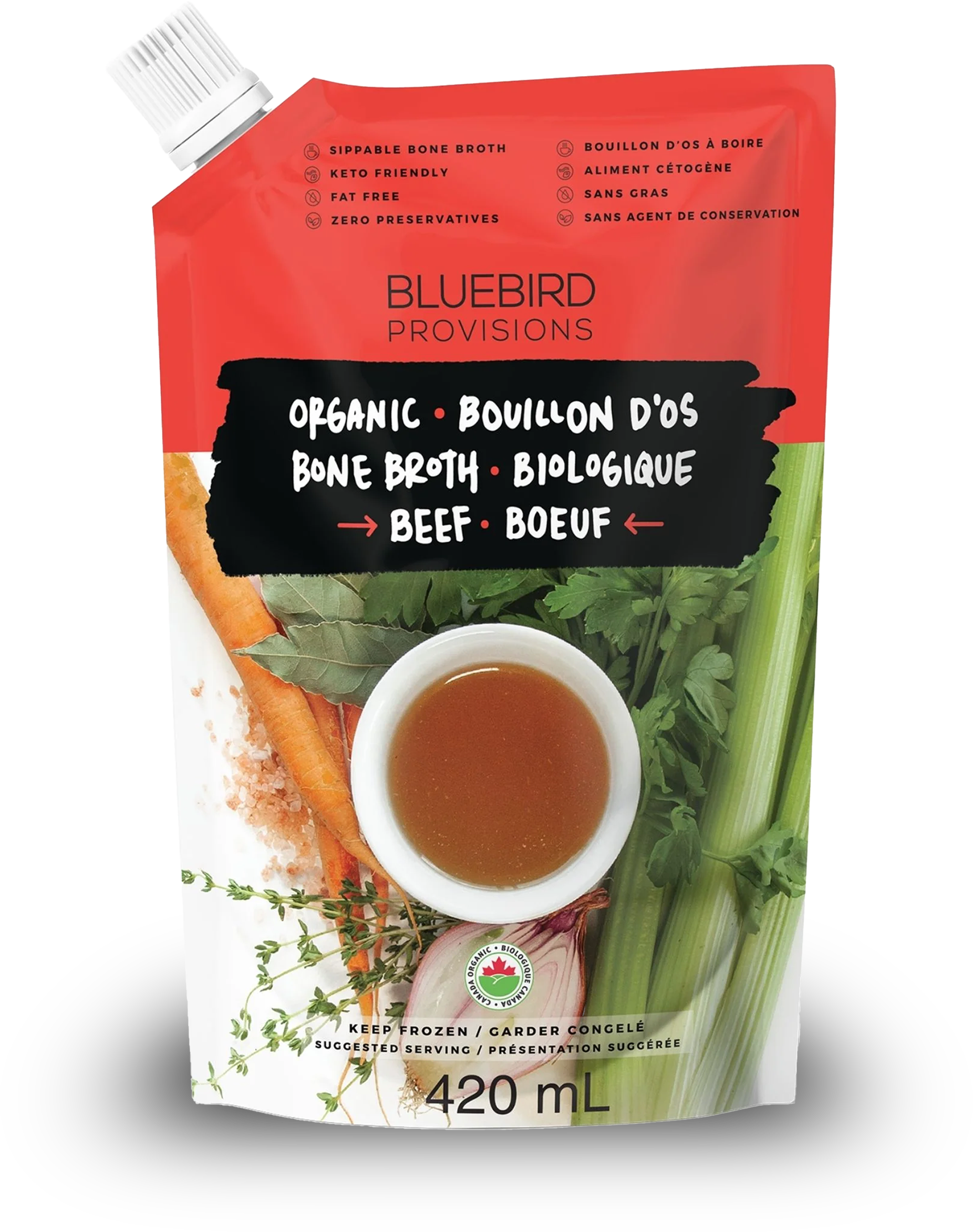

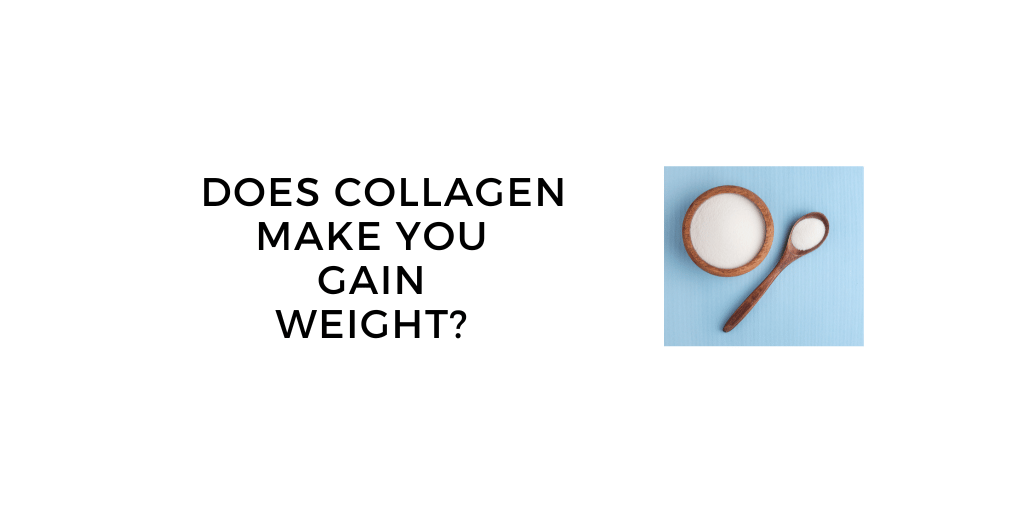
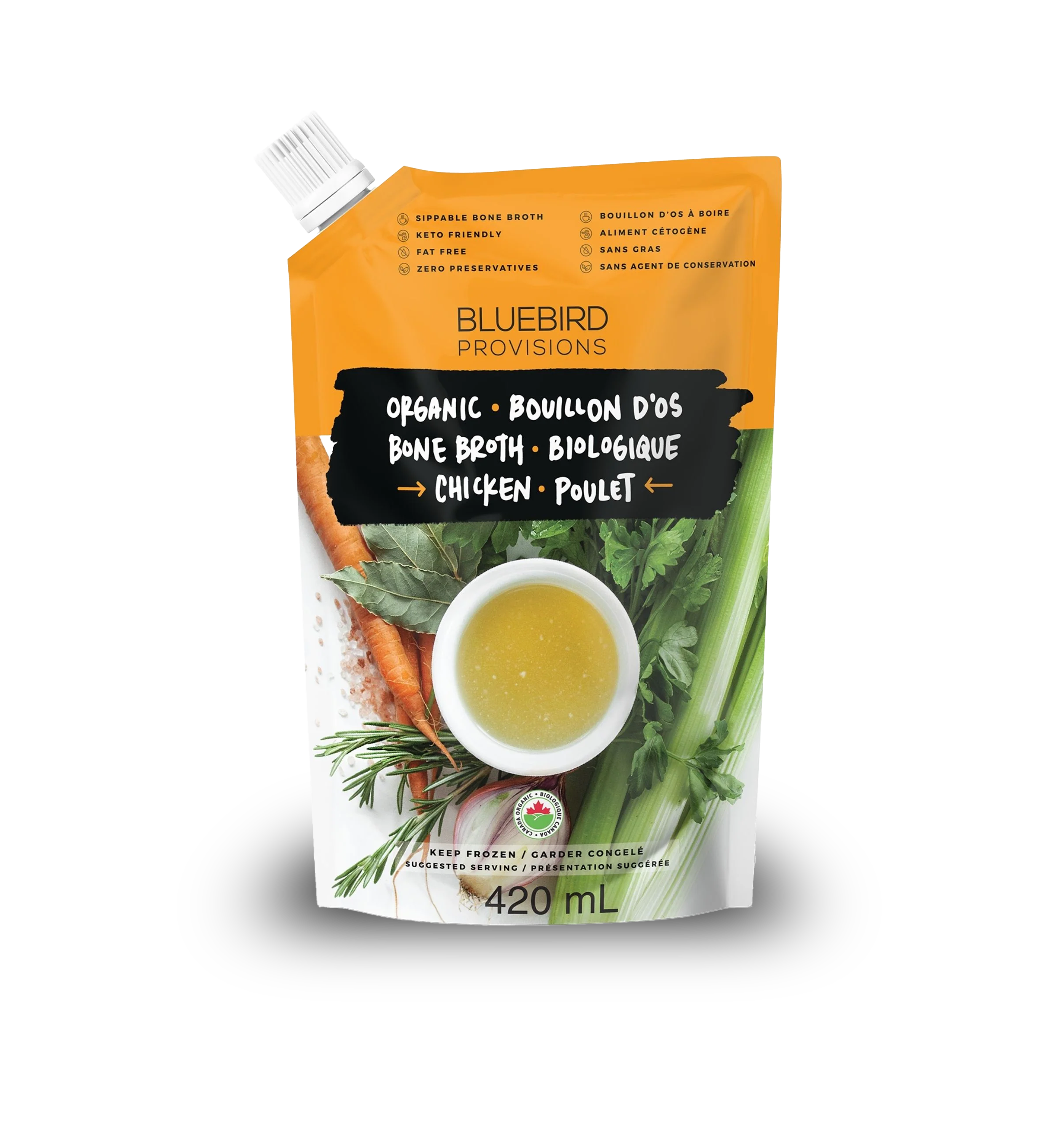
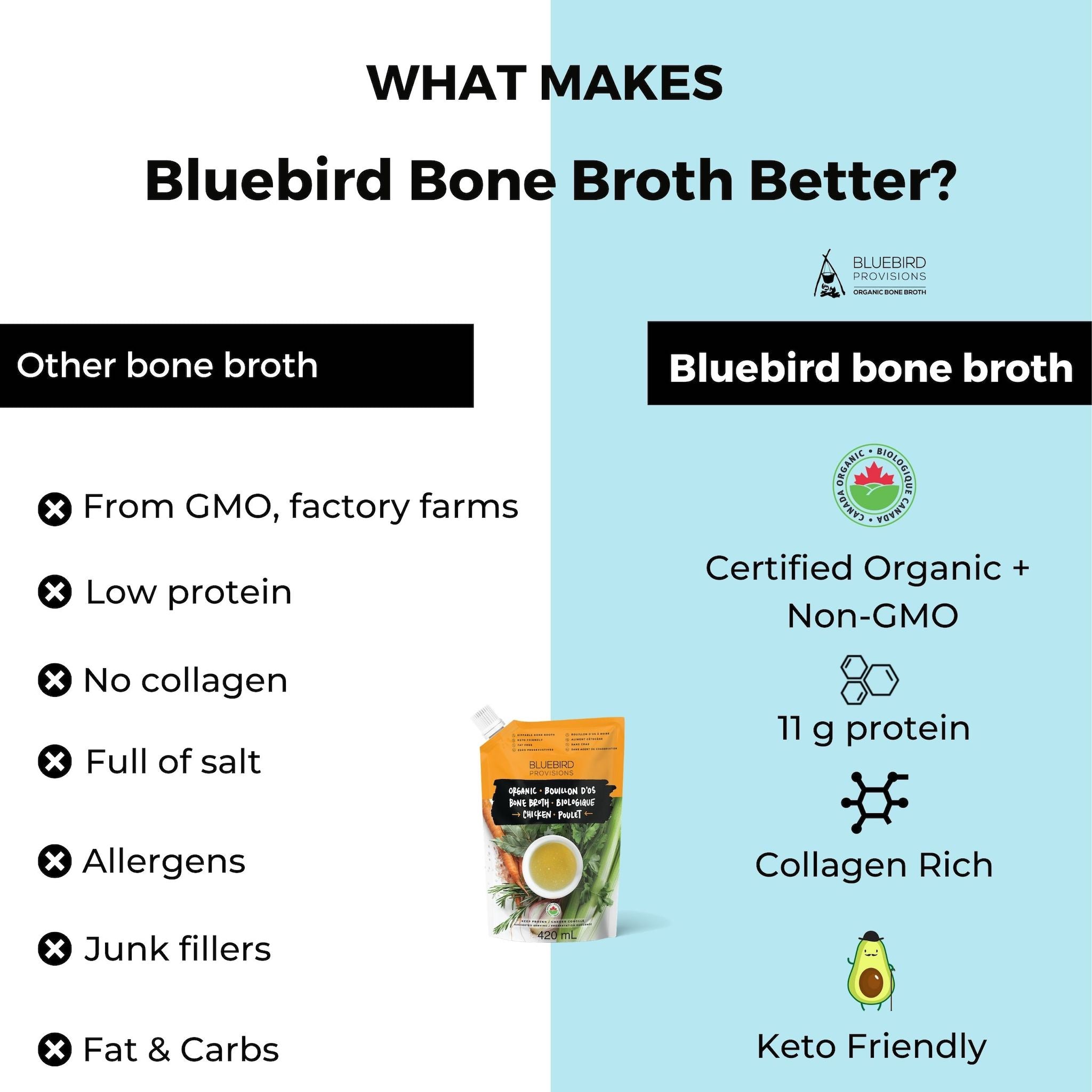
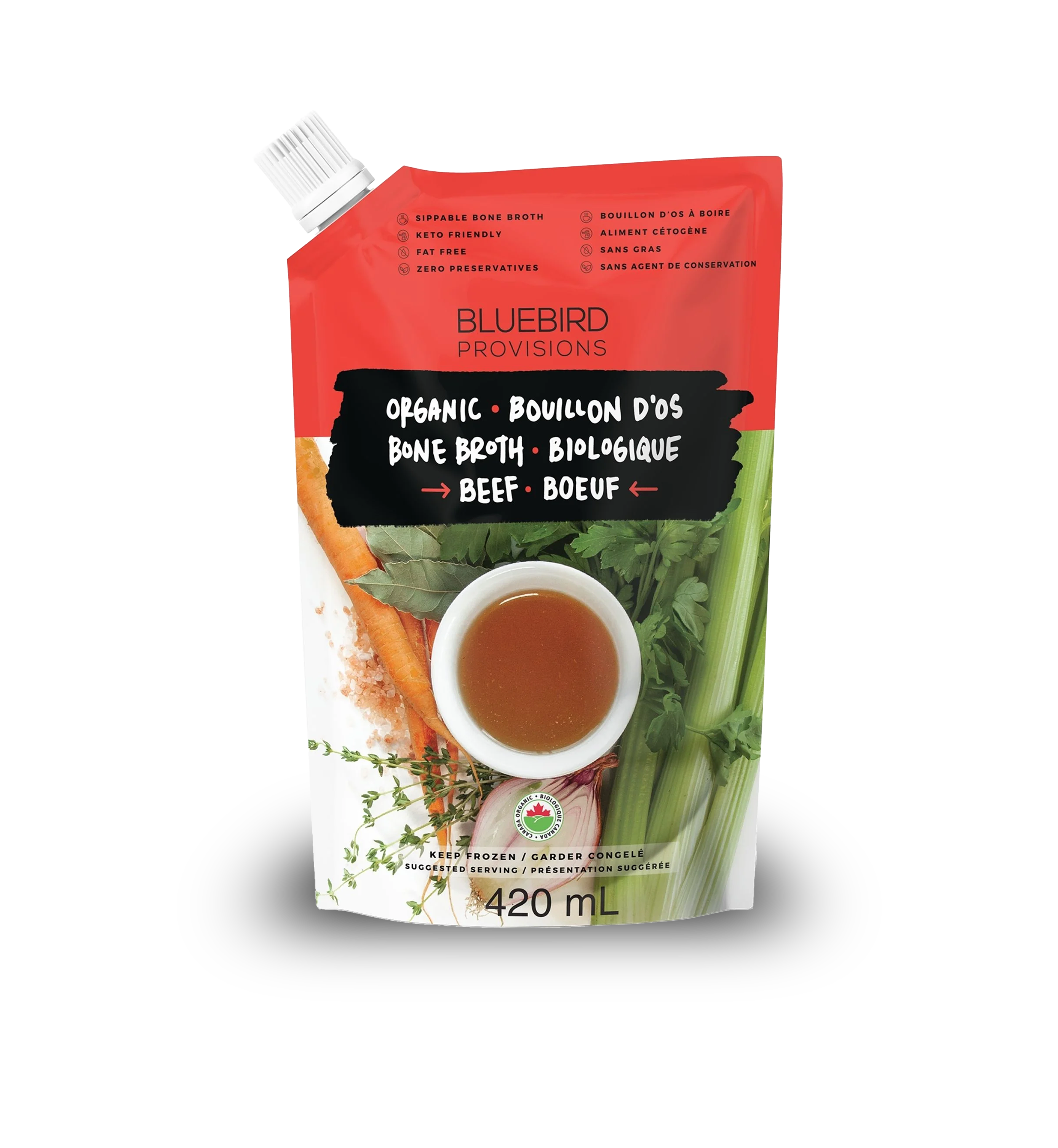
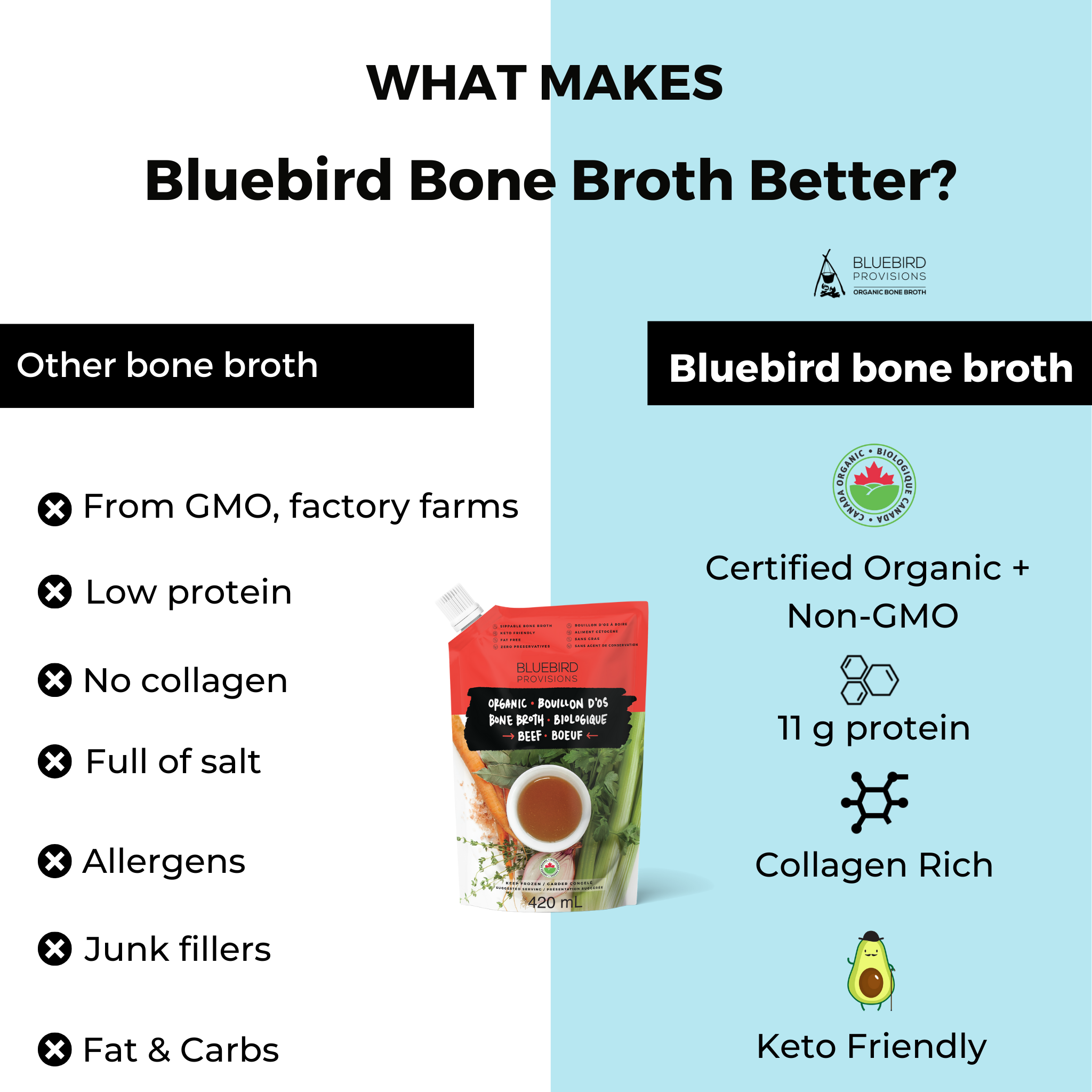
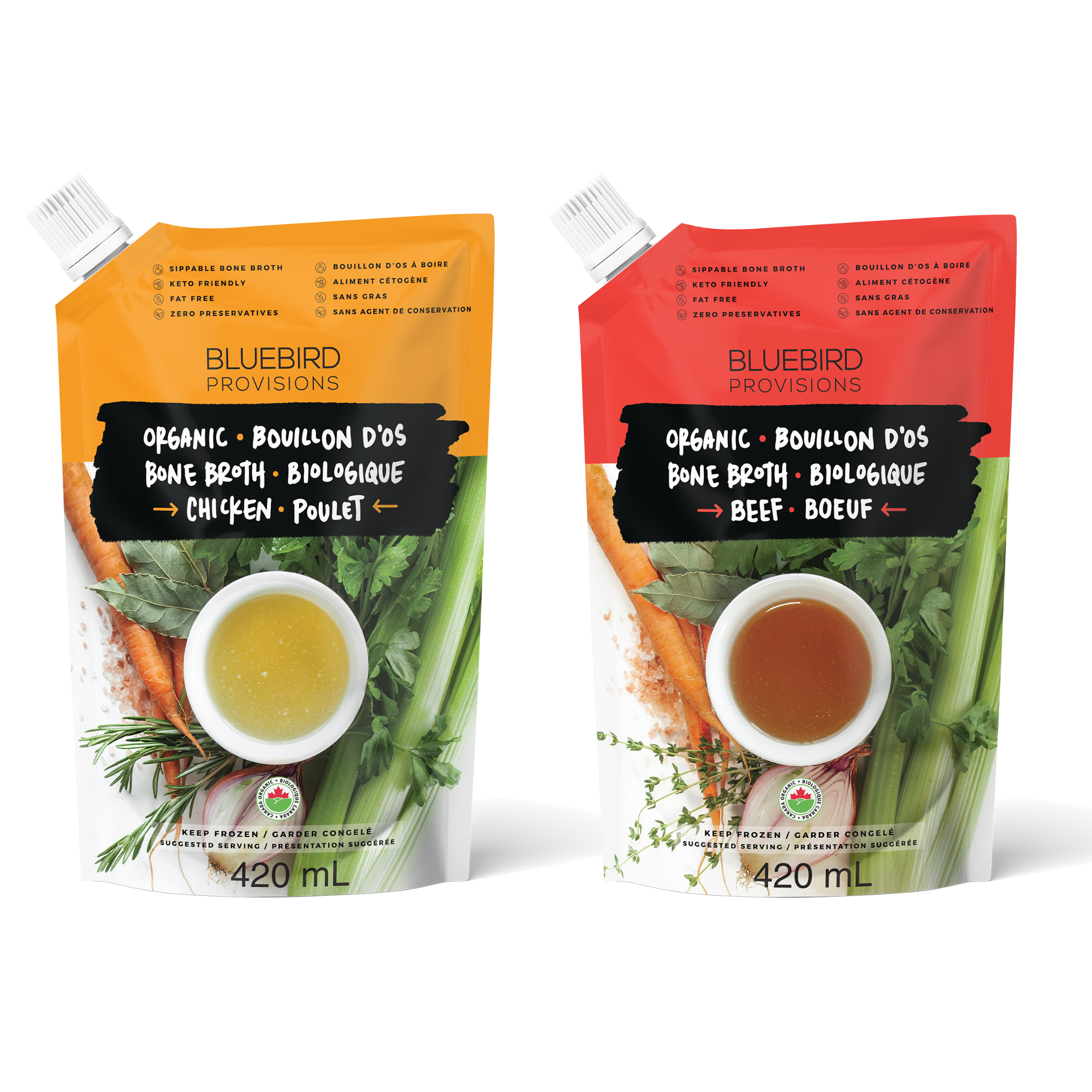

Leave a comment
This site is protected by hCaptcha and the hCaptcha Privacy Policy and Terms of Service apply.